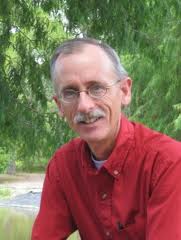Last post I blithely tossed around a handful of terms for the editing services Yellow Bird provides. I may have put the freelance editing process into the right order, but, because of space considerations, I didn’t fully describe what each type of editing entails. So, without further ado, allow me to present What Kind of Editing Do You Need, Part the Second.
Let’s start at the wide end, with content editing and developmental editing. What’s the difference between the two? I like to think of it in terms of editorial invasiveness.
If you’re looking for an editor to douse your manuscript in red ink, you probably want content editing. Your content editor will pore over every sentence in the book, making hundreds (sometimes thousands) of edits directly into the text to improve the content, flow, and style. Line edits are usually made using the Track Changes feature in Microsoft Word, and broader comments about the text are inserted into the margins. This service touches on everything from big-picture commentary (character development, plot, pacing, etc.) to nitty-gritty sentence-level details. Unlike copy editing, which is primarily focused on fixing errors, content editing is inherently subjective and influenced by the style of the particular editor.
Follow this link to see how your pages will probably look when you get them back from a content edit. It can be daunting to see that much red ink on your baby like that. I won’t lie; it’s not for the faint of heart! More importantly, it’s not for the writer who hasn’t already taken her manuscript as far possible with critique partners and beta readers. Get your novel as clean as you can before you pay for this service. You don’t want to hire a pro to do what you can do for yourself, especially when you’re paying, on average, $6-10/ page.
If you’re not ready (or can’t afford) the rigors of a full content edit on your manuscript, developmental editing offers the same thorough, high-level feedback without all the line-edits. Yellow Bird offers two different types of developmental editing, depending on how you prefer to receive feedback:
With Developmental Editing Type A, your editor reads your full manuscript and compiles feedback in an extensive editorial letter, usually ranging from 6-8 single-spaced pages. This editorial letter covers feedback on a range of issues, including: pacing; flow of narrative; transitions; voice; plot; structure; dialogue; character development; audience; potential market. Obviously, this format necessitates a primarily big-picture focus. But that doesn’t mean you won’t get highly specific notes. My editorial letters are always heavily peppered with cited page numbers and quoted bits of manuscript text.
With Developmental Editing Type B, your feedback comes in the margins of the manuscript instead of an editorial letter. Specifically, your editor will read your draft, highlight passages that need attention, and insert a variety of comments in the margins plus “end-notes” after each chapter. The comments in the margins are usually specific to that page, whereas the end-notes summarize feedback for the whole chapter.
Either way you go, developmental editing does not provide actual rewrites. The revising remains completely up to you. But don’t think that means you’ll get off easy! Your editor will still put your manuscript through the wringer, believe me.
The last editing option I want to touch on here is the manuscript critique, which can be thought of as “Developmental Editing Lite.” With a manuscript critique, your editorial letter will likely be shorter (3-5 single-spaced pages) because your editor won’t go into as much depth or detail. If you are primarily just looking for an editor to help you see the big-picture (voice, plot holes, character arcs, etc.) a manuscript critique is usually sufficient. If, on the other hand, you’re looking for extremely thorough and detailed feedback, then developmental editing or content editing is probably a better choice.
Regardless of which editing service you choose, the end goal remains the same: to prepare your manuscript for the next step in its process, whether that’s another round of revisions or pursuit of publication.
Well, I’ve run out of room. So you’ll just have to wait until next time to read about the thrilling and nuanced world of copy editing and proofreading.














